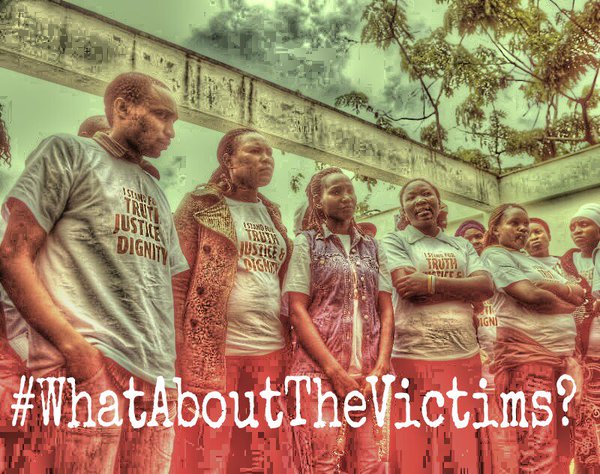By Sarah Nyakio
As the world is developing, technology is advancing too. This progression has been accelerated by the emergence of the internet and its increased use across the globe. Over time, the internet has grown to a combination of complex systems, allowing billions of people across the world to communicate with each other in a glimpse of an eye.
Knowledge is therefore needed to maximize the user’s personal safety and security to private information as well as protection from computer crimes. Human rights belong to everyone offline as well as online. Therefore, the public needs to be informed of the importance of human rights and cybersecurity.
The internet is a digital force of nature, and if it has to be governed, it must be done responsibly, with respect to human rights – digital rights.
Consequently, we need an equivalent of Magna Carta of new legislation to protect our rights in the digital age.
Digital Rights in Africa
Digital rights refer broadly to human rights in the digital era and the rights that are implicated in the access and use of the internet and other ICTs.
These rights encompass a myriad of other fundamental rights underpinned in various international and regional treaties or conventions and espoused in national constitutions and legislation. Some examples include the right to privacy, data protection and the freedom of expression and association. Notably, privacy and data protection are two interrelated Internet governance issues. Particularly, data protection is a legal mechanism that ensures privacy, a fundamental human right that is recognized in the Universal Declaration of Human Rights and in many other international and regional human rights conventions.
While many jurisdictions in Africa have attempted to address issues of digital rights through legislation, much is yet to be achieved. On 5 February 2019, Nigeria’s National Assembly transmitted the Digital Rights and Freedom Bill to President Muhammadu Buhari for his assent. The Bill, which had been in Parliament since 2016, was passed by both chambers of the Parliament in 2018. However, President Buhari refused to sign the bill into law stating the Bill covers too many technical subjects and fails to address any of them extensively, listing such areas to include surveillance and digital protection, lawful interception of communication, digital protection and retention, etcetera, which he said are currently the subject of various bills pending at National Assembly.
In other cases, authorities in respective jurisdictions are still struggling with the balance between state security, privacy and data protection. For instance, the Ethiopian government turned off the country’s internet on June 22, 2019, amid reports of an attempted coup.
In the African setting, it is firmly established by both the ACHPR and the UN Human Rights Council that the same rights that people have offline must also be protected online, in particular, the right to freedom of expression. Article 19(2) of the International Covenant on Civil and Political rights makes it clear that the right to freedom of expression applies regardless of frontiers, through any media of one’s choice.
Why do Digital Rights Matter?
Digital rights are crucial because they ensure the protection of citizens’ digital presence. People need to understand how technology is shaping our rights, for good and for ill, and who it is who is seeking to employ and capture technology for their benefit rather than yours.
Free speech is under attack from several governments, especially the right to access information. In Tanzania, the government introduced four laws that impact freedom of expression and the press: the Cybercrimes Act, 2015; the Statistics Act, 2015; the Media Services Act, 2016; and the Access to Information Act, 2016. The Cybercrimes Act has given rise to a particular concern. In terms of section 16, it is an offence to publish information, data or facts presented in a picture, text, symbol or any other form in a computer system, where such information, data or fact is false, deceptive, misleading or inaccurate. Furthermore, the government has been described as using the Cybercrimes Act to legally harass private citizens who criticize the government on online platforms.
The curtailing of digital rights violates the freedom of speech and thus disenabling a free and fair environment.
Coming Times
Achieving digital rights remains unfinished business for African countries. In Africa, the contestation between States on their obligations to fulfil, uphold and respect digital rights and non-state duty to monitor compliance is riddled with contradictions and divergent conceptual understanding challenges. Yet, if the full realization of digital rights in the continent is to be achieved, effective implementation of normative frameworks is a necessary precursor in order to guarantee the right to development, peace and security in the continent.
Therefore, during our two-day annual jurists’ conference we will adequately interrogate digital rights give recommendations on how the continent can achieve digital rights as well as hold repressive governments accountable.
The respect and upholding of digital rights in Africa still remain a matter of concern in most African jurisdictions. While Kenya has, for instance, taken recent steps to develop a comprehensive data protection law, there remain a number of states in the sub-region that have yet to do so.
While each of the countries under review in the report presents unique challenges and opportunities that are particular to the domestic context, there are certain key trends that should be highlighted.
Content restrictions more generally is a trend seen in all the countries under review, with there being a plethora of laws and policies that impact the exercise of free speech online.
Digital rights litigation is developing well in countries such as Uganda, other countries such as the Democratic Republic of Congo have had no notable digital rights litigation.
However, the regional and sub-regional fora have presented opportunities for vindicating the right to freedom of expression. These remain important fora for digital rights litigation, particularly in countries where access to the domestic courts is considered limited.











